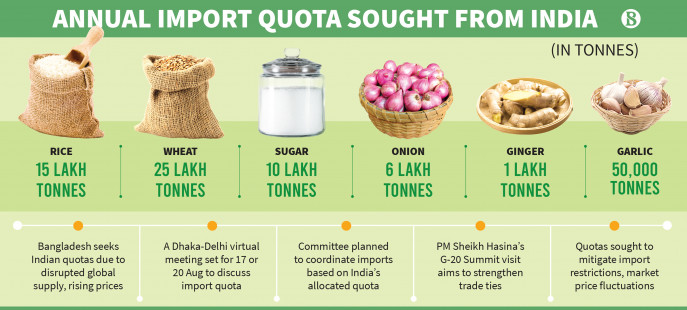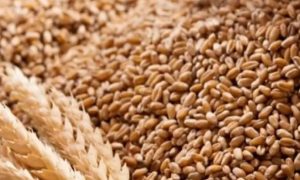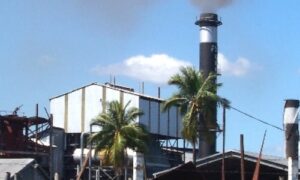Dhaka urges Delhi for import quota for 15 lakh tonne rice, 25 lakh tonne wheat

Bangladesh has formally requested an annual import quota for 15 lakh tonnes of rice and 25 lakh tonnes of wheat from India in order to protect its food security and stabilise prices amid concerns about potential supply disruptions caused by natural disasters and global crises.
The requested quota also includes 10 lakh tonnes of sugar, 6 lakh tonnes of onions, 50,000 tonnes of garlic, and 1 lakh tonnes of ginger.
The commerce ministry recently submitted a report through the foreign ministry to the Indian authorities, outlining the request.
A virtual meeting between the two countries’ authorities is scheduled for today or next Sunday to discuss this matter.
The commerce ministry had a preparatory meeting last week in anticipation of this discussion. During the preparatory meeting, it was decided to establish a committee to manage imports based on India’s allocated quota.
If the quota is approved by India, the government plans to import 8-10 lakh tonnes of rice and 5-7 lakh tonnes of wheat at the government level. The remaining rice and wheat will be brought in by the private sector, while all other goods will be imported through the private sector.
Sources at the commerce ministry mentioned that Prime Minister Sheikh Hasina is expected to travel to India for the G-20 Summit on 20 September. Both the nations aim to resolve the import quota issue before her visit to enhance trade ties and ensure a consistent supply of essential goods.
The discussion on the import quota is a result of a joint declaration by the prime ministers of both countries and a series of meetings between commerce ministers.
India wishes to set conditions for granting quotas to Bangladesh due to concerns that excess quotas might lead to losses for Indian farmers if not utilised.
Bangladesh has import dependency for the six products under consideration and currently imports them from countries other than India as well.
Various factors, including the Russia-Ukraine conflict and natural disasters, have disrupted global supply chains for these products, leading to price increases and availability challenges.
Against this backdrop, during Prime Minister Sheikh Hasina’s visit to India in September last year, the idea of an annual fixed quota for essential goods exports to Bangladesh was explored.
As a follow-up, on 22 December of the same year, commerce ministers from both countries discussed the matter in detail.
At their meeting, India asked Bangladesh to provide specific information about what products and in what quantities it wants to import from India.
In January this year, Bangladesh expressed its demand for rice, wheat, sugar, onions, garlic and ginger. For their part, the Indian authorities requested Bangladesh to revise its demand. Afterward, this new demand was determined.
Although Bangladesh is self-sufficient in rice production, natural disasters like floods, excessive rainfall and droughts can affect its production. In such circumstances, the country might require imports of essential food items like rice.
In the field of rice import, the government and businessmen of Bangladesh still consider India as the main source. The types of rice in India are similar to those grown in Bangladesh, and due to India being a neighbouring country, it also takes less time for imports from there. This is why more imports are from India. However, imports are also available from Vietnam and Thailand.
For wheat, a significant portion is imported from Russia and Ukraine.
India and Canada are the sources for wheat imports. However, due to the Russia-Ukraine conflict, the supply of these products from these countries has been affected. Bangladesh now relies more on India for imports.
Currently, Bangladesh has a demand for more than 85 lakh tonnes of wheat, the lion’s share of which is met through imports.
Changes in people’s lifestyles have led to an increase in the demand for food made from wheat, including fish, poultry and livestock feed production.
Due to difficulties in wheat imports from Russia and Ukraine, Bangladesh is now seeking to obtain wheat through special arrangements from India.
On the other hand, most of the sugar imports come from Brazil and Argentina. However, Bangladesh’s businessmen are not willing to remain solely dependent on Brazil. They also want to import from India.
The country requires around 20 lakh tonnes of sugar annually, of which a meagre 1-1.5 lakh tonnes are produced domestically, and the rest needs to be imported.
Similarly, Bangladesh is dependent on onion imports as well. At the same time, the price of this spice item in Bangladesh is linked with the Indian market.
Despite the fact that onions produced within the country are sufficient to meet local demand, various factors lead to a loss of a portion of the produce, necessitating imports.
Bangladesh imports 8-10 lakh tonnes of onions annually. Supply shortages lead to the product’s price getting exorbitant.
Garlic and ginger are imported from Myanmar and China. Currently, there are no barriers to importing these products from India. But India occasionally restricts certain items if needed.
At present, the export of wheat and sugar from India remains restricted. Rice and onion exports from India also face restrictions at times, significantly impacting the market in Bangladesh. Despite the availability of products in the market, prices often increase multiple times.
Bangladesh seeks this quota from India to mitigate such undesirable situations, commerce ministry officials have said.
Source Link: https://www.tbsnews.net/economy/dhaka-urges-delhi-essential-food-import-quotas-683626














